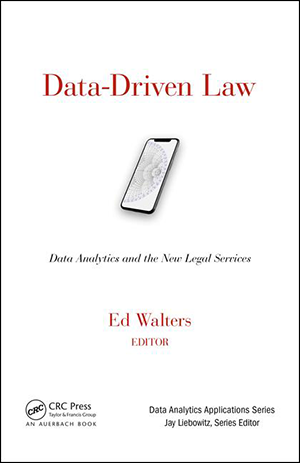How to stop worrying and learn to love data-driven law

Data informs, and in some cases controls, every aspect of modern life. Well, almost every aspect. “If you look at finance or medicine or sports, almost every other thing in the world is using data to make better decisions,” says Ed Walters. “Everything except law.”
In this episode of the Modern Law Library, the ABA Journal’s Jason Tashea speaks with Walters, editor of Data-Driven Law: Data Analytics and the New Legal Services. The book is a collection of articles by data scientists, lawyers and technologists on a breadth of topics, including data mining, the accuracy of technology-assisted review in e-discovery and quantifying the quality of legal services.

Apple | Stitcher | Google Play
His argument for the book is simple: Using data can improve legal services. For example, figuring out what a case is worth or how much a good settlement amount would be is “pivotal,” says Walters, who is also the CEO of the legal research software company Fastcase. However, he says that lawyers tend to answer these questions based on very limited experiences, or hunches. At the same time, these questions can be better answered—and a client better represented—with the assistance of data.
In this episode of the Modern Law Library, Walters touches on how data can be biased and why incorporating data into the practice of law is not the gargantuan undertaking that many think it is. He also shares what he’s reading to stay informed on the ever-evolving issues of data and machine learning.
In This Podcast:

Ed Walters
Ed Walters is the CEO and co-founder of Fastcase, an online legal research software company based in Washington, D.C. He is the editor of Data-Driven Law: Data Analytics and the New Legal Services. (Photograph by Arnold Adler.)



